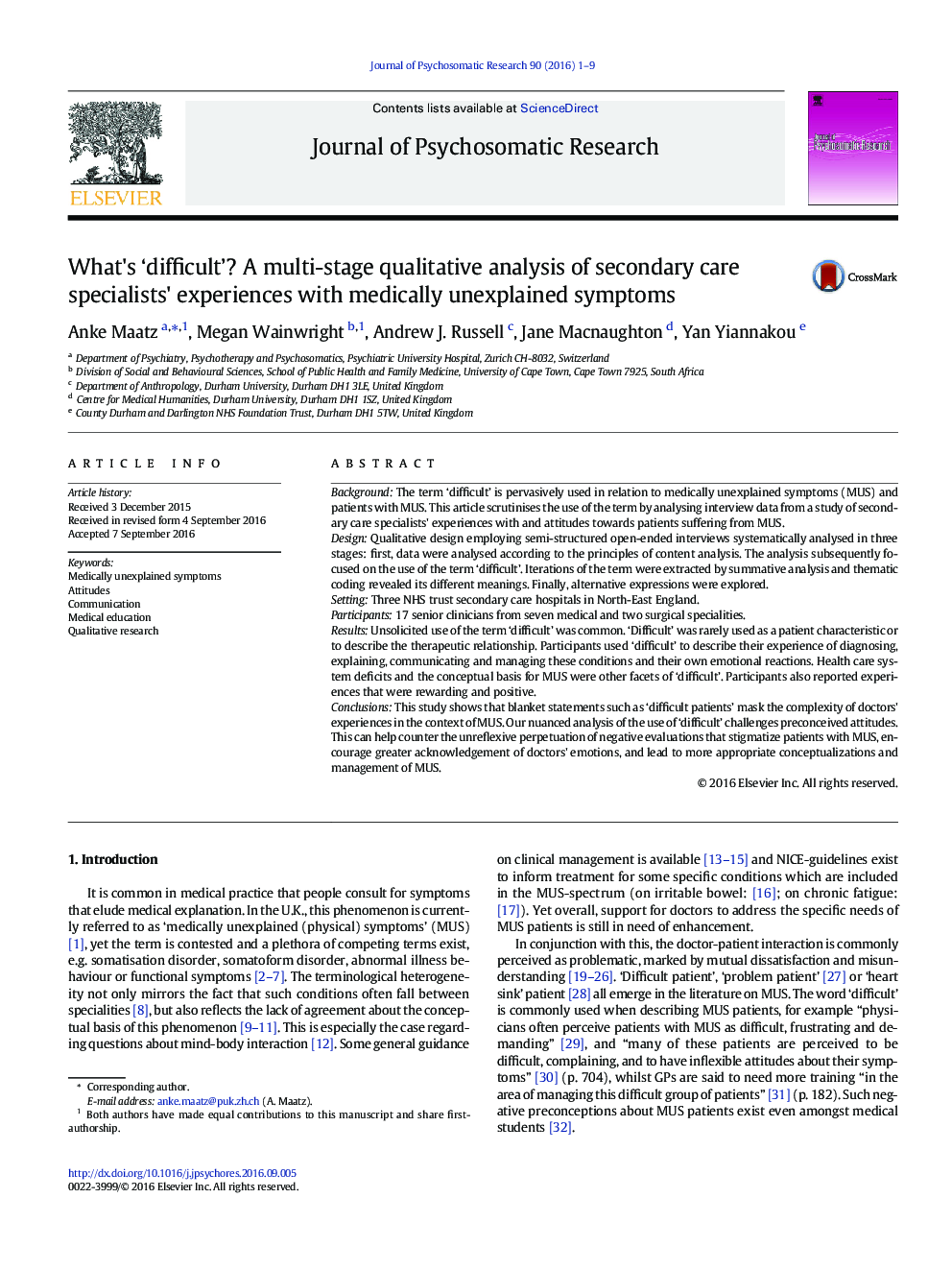| کد مقاله | کد نشریه | سال انتشار | مقاله انگلیسی | نسخه تمام متن |
|---|---|---|---|---|
| 5046121 | 1475905 | 2016 | 9 صفحه PDF | دانلود رایگان |
- Blanket use of 'difficult' masks the complexity of doctors' experiences with MUS.
- 'Difficult' was used to describe communication, diagnosis, explanation and management.
- Doctors reported more varied and positive experiences than 'difficult' suggests.
- Recognition and legitimation of particular emotional demands should be encouraged.
- Illness conceptualization, training and health care structures need reconsidering.
BackgroundThe term 'difficult' is pervasively used in relation to medically unexplained symptoms (MUS) and patients with MUS. This article scrutinises the use of the term by analysing interview data from a study of secondary care specialists' experiences with and attitudes towards patients suffering from MUS.DesignQualitative design employing semi-structured open-ended interviews systematically analysed in three stages: first, data were analysed according to the principles of content analysis. The analysis subsequently focused on the use of the term 'difficult'. Iterations of the term were extracted by summative analysis and thematic coding revealed its different meanings. Finally, alternative expressions were explored.SettingThree NHS trust secondary care hospitals in North-East England.Participants17 senior clinicians from seven medical and two surgical specialities.ResultsUnsolicited use of the term 'difficult' was common. 'Difficult' was rarely used as a patient characteristic or to describe the therapeutic relationship. Participants used 'difficult' to describe their experience of diagnosing, explaining, communicating and managing these conditions and their own emotional reactions. Health care system deficits and the conceptual basis for MUS were other facets of 'difficult'. Participants also reported experiences that were rewarding and positive.ConclusionsThis study shows that blanket statements such as 'difficult patients' mask the complexity of doctors' experiences in the context of MUS. Our nuanced analysis of the use of 'difficult' challenges preconceived attitudes. This can help counter the unreflexive perpetuation of negative evaluations that stigmatize patients with MUS, encourage greater acknowledgement of doctors' emotions, and lead to more appropriate conceptualizations and management of MUS.
Journal: Journal of Psychosomatic Research - Volume 90, November 2016, Pages 1-9
